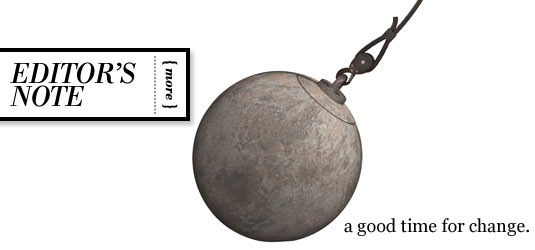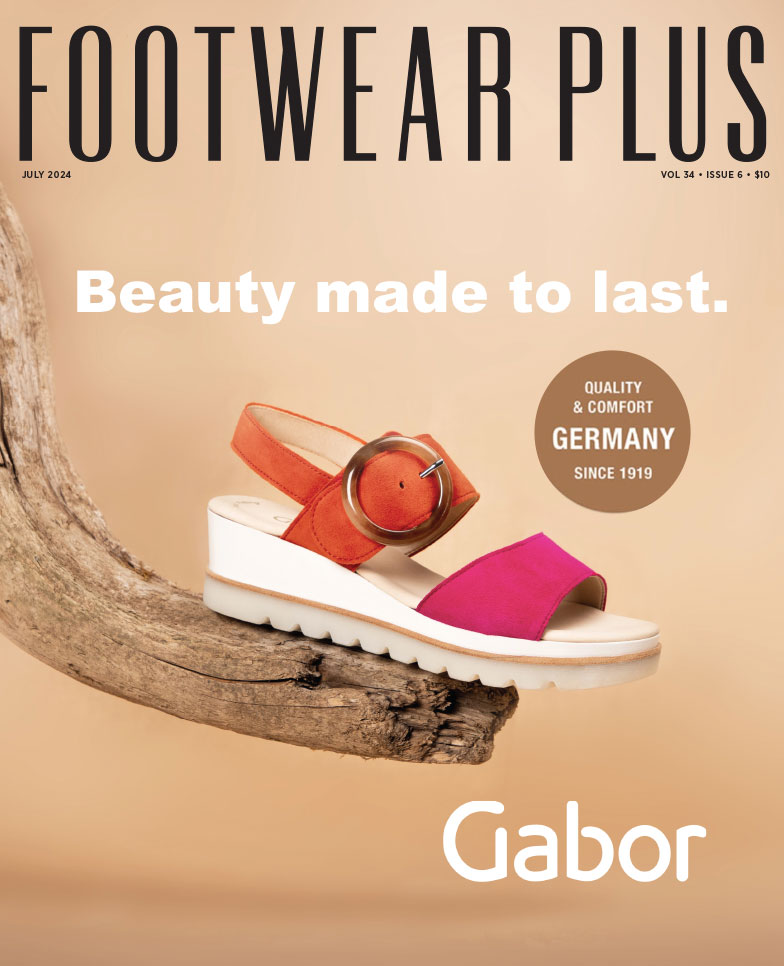Fall is the ideal time to bring out the metaphorical wrecking ball and obliterate what is passé, played or busted. The change of seasons—where Mother Nature breaks summer’s stifling heat with cool Canadian air and trees go out in a blaze of glory—offers an energizing backdrop for making changes and trying fresh approaches. It sure beats winter—a season that can paralyze you with fits of nostalgia, a sense of finality and a desire to hunker down or even hibernate. (They don’t call it the “dead of winter” for nothing.)
The presidential election this fall only heightens the feeling of potential change in the crisp air. No matter who occupies the White House, big changes are surely on the way. If Barack Obama is re-elected, for example, the majority of the country won’t stomach four more years of Congressional gridlock. Mitt Romney as president would suggest that voters want even more serious changes when it comes to how Washington governs; the equivalent of a mega-wrecking ball.
Changes in our industry might not be as epic in scale, but could have a strong impact nonetheless. For instance, will the weather change enough to produce a real winter as opposed to last year’s extended fall, which led right into an early spring and put the kibosh on boot sales? If not, might certain cold-weather necessities cease to be considered staples? I hope the wrecking ball crushes last year’s status quo weather-wise. Boots are just too important of a segment in our industry to be made unnecessary by a temperate climate. Besides, winter is what makes spring and summer beautiful. It’s the annual contrast that’s so rejuvenating. In the meantime, the buy now/wear now mentality doesn’t show signs of abating. Apparently, consumers are content to take their fashion cues from Mother Nature.
Assuming Mother Nature will stay unpredictable, I’d sure like to line up that wrecking ball to break through this listless economy. I’ve read enough recovery talk. It’s time to see some genuine improvement—enough to set the majority of the country on a course toward better financial footing. Any such breakthrough would mean aiming a wrecking ball at the mountain of unemployment and smashing through it to create more jobs. One encouraging sign in this regard: It’s increasingly chic to “buy American” and to look for even more localized origins like “Made in Detroit.” We’re shattering preconceived notions that American-made goods are too expensive and that we don’t make anything in the U.S. anymore. Hats off to those in our industry—New Balance, Justin Boot Company, Wolverine Worldwide and Allen Edmonds, to cite a few—for creating American-made products, and American jobs.
Never underestimate the positive impact our industry has on the overall economy. There are thousands of retailers across the country employing many thousands more Americans helping to sell our products. And retail is always ripe for fresh approaches. Take, for example, this month’s profile (p. 18) of the recently renovated and expanded Harry’s Shoes in New York. Owner Robert Goldberg warns that refusing to change can be a death knell. Rapidly changing consumer demographics in his Manhattan location prompted him to nearly double his square footage and to upgrade his merchandise mix to embrace those changes. Goldberg offers insightful details about the new Harry’s, and is an inspiring success story.
When it comes to wrecking ball analogies and shattering preconceived expectations, I can’t resist mentioning the Baltimore Orioles. After 14 straight losing seasons and predictions for a 100-loss season in 2012, those once-hapless Birds smashed the culture of losing to smithereens. Hard work, perseverance, belief in themselves, and a little bit of good fortune produced a winning change. It’s an inspiring example for all of us, particularly for this lifelong Orioles fan.




